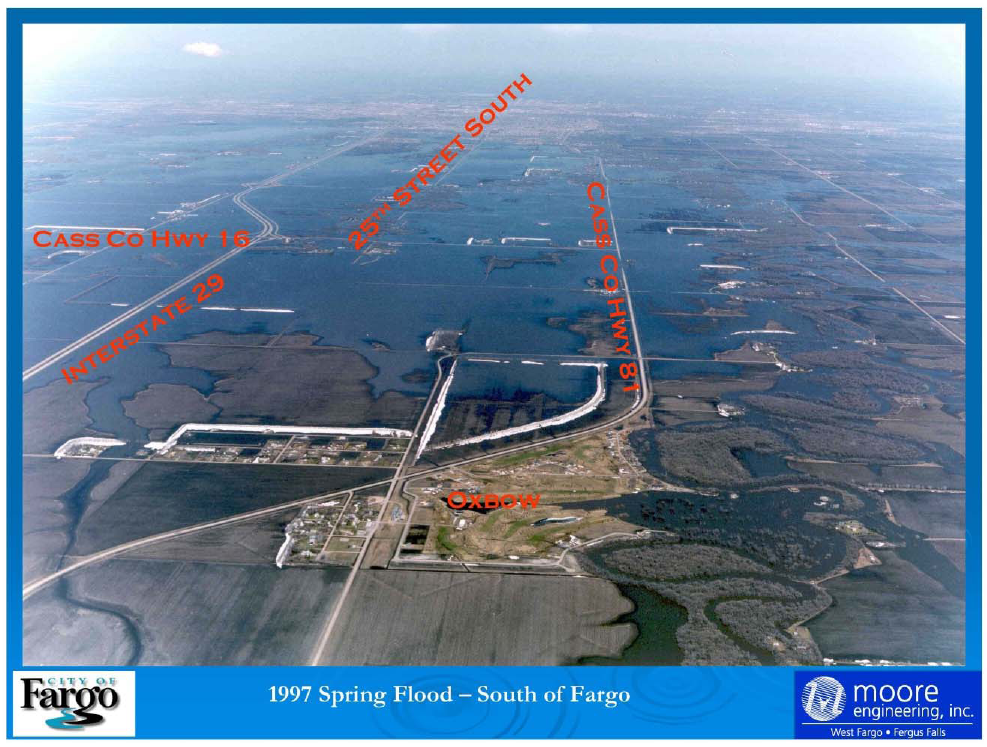Richland-Wilkin Joint Powers Authority
Original Publication Date: May 3rd, 2012
Republished with persmission from: Wahpeton Daily News
A little more than a year ago, Fargo announced its intention to construct dams on the Wild Rice and Red rivers as part of a flood control project for Fargo-Moorhead. Since that time, the residents of Wilkin and Richland counties have been studying, not only the impacts that would be visited on our counties by the operation of these dams, but the reasons set forth to justify their construction.
We have learned that the impacts would be devastating to our counties. Even more troubling, we have learned that the public statements made by the proponents of these dams are often inconsistent with, and sometimes contrary to, the materials and statements published by the U.S. Army Corps of Engineers. I have come to see that construction of these dams is not necessary for Fargo to have permanent flood protection. These dams are only necessary to accommodate Fargo’s plans to drain and develop the natural flood plain extending south of Fargo.
To protect our residents and our interests the county commissions of Wilkin and Richland counties formed the Richland-Wilkin Joint Powers Authority, a legal organization composed of numerous cities, townships and school districts from Richland and Cass counties in North Dakota, and Minnesota townships and cities in Wilkin and Clay counties. The five-county organization, which includes Ransom, Sargent, LaMoure, Dickey and Richland, has joined the Joint Powers Authority. The statewide North Dakota Township Association has passed a resolution supporting us. We expect the number of city and township members will double in the next few weeks.
This organization, of which I am chairman, represents a significant voting block of the state of North Dakota, a constituency that will grow as we reach out to our communities. Two weeks ago I appeared at a North Dakota legislative committee on water oversight that met in Fargo. I appeared and testified in my capacity as a county commissioner and chairman of the Joint Powers Authority. I was well received by our state senators and representatives. They heard me and acknowledged our position. The reporting on the subcommittee meeting by the Fargo media made no mention of Richland County, the Joint Powers Authority, or our position. The private employers who showed up to endorse Fargo’s plan were covered, as were other aspects of Fargo’s presentation that promoted the plan. But the Joint Powers Authority, a political organization formed from cities, school districts, townships and counties from two states was not mentioned.
I was not surprised. The Fargo media has again and again minimized, ignored and refused to cover information unfriendly to Fargo plans to dam and divert the rivers. Fortunately, we have the Daily News of Wahpeton and Breckenridge and its editorial team who have generously offered us a weekly column: “Defending Richland and Wilkin.” In the coming weeks, we will present the true facts and figures regarding the Fargo Diversion, how it impacts our community and how we intend to protect our residents and counties.
Stay tuned.
Perry Miller, Richland County Commissioner and
Chair of the Richland-Wilkin Joint Powers Authority
Cash Aaland, Committee Member of the Richland-Wilkin Joint Powers Authority
Views: 63


The voters in Fargo narrowly passed the continuation of the half cent sales tax. Most of those votes came from south Fargo, according to the polls. With flood protection on the minds of folks in south Fargo, it’s no wonder.
Also, there will soon be a new map released by FEMA that will change the insurance options based on projected water levels for a l00 year flood / 500 year flood.
How much protection does South Fargo need based on the cost and the risk factor?
In my opinion, the costs to individual families, communities south of Fargo, and our two billion dollars in taxes far exceed our risk of flooding.
I agree that our challenge is to share accurate information to the general population. Could this task be given to high school English teachers giving assignments to do a research paper to their students?
What about the League of Women Voters that could be interested in studying this issue? Any more ideas about how to get people involved?